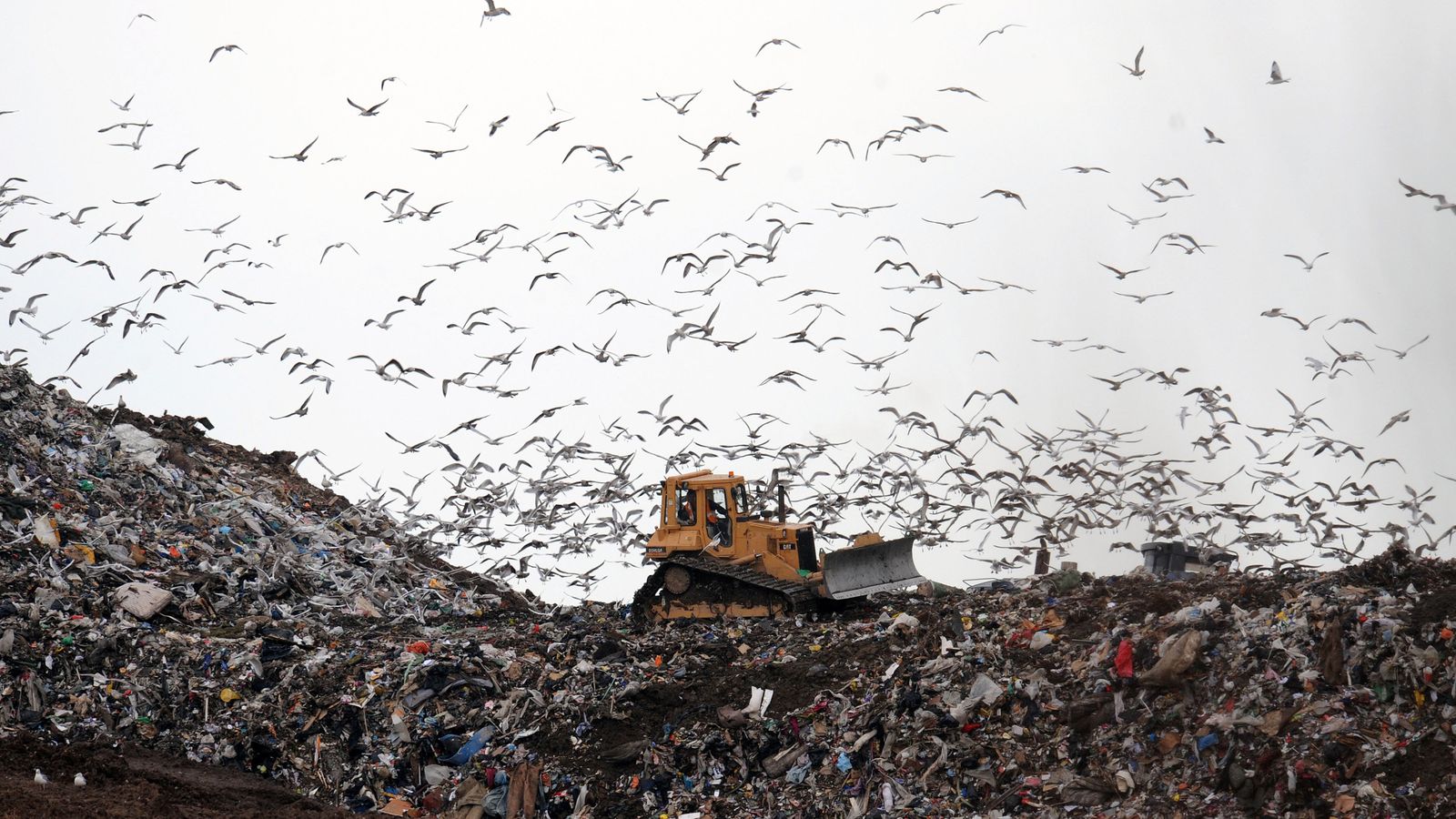
Privacy statement: Your privacy is very important to Us. Our company promises not to disclose your personal information to any external company with out your explicit permission.
Supply chain focus
Previous research has focused on the impact of plastic waste on the natural world, or on the consumer companies making and selling consumer products packaged in plastic.
By contrast, this analysis tracks the flow of plastic through the supply chain, starting with the manufacturers of the basic ingredients that go into making single use items.
Those ingredients, known as polymers, are mostly produced by processing fossil fuels including oil, gas and coal.
The research was led by Australia's Minderoo Foundation and a consortium including LSE, market researchers Wood Mackenzie and the Stockholm Environment Institute.
US-based ExxonMobil is the biggest producer of single-use plastic, the report says, followed by: Dow, Sinopec, Indorama Ventures, Saudi Aramco, PetroChina, LyondellBasell, Reliance Industries, Braskem, Alpek SA de CV, Borealis, Lotte Chemical, INEOS, Total, Jiangsu Hailun Petrochemical, Far Eastern New Century, Formosa Plastics Corporation, China Energy Investment Group, PTT and China Resources.
According to the foundation's director of finance and transparency, Dominic Charles, the research highlights "how the future of the plastic waste crisis is in the hands of just 20 companies".
He says: "It's an extraordinary point of leverage for regulators, for finance institutions, to influence them in order that rather than producing from fossil fuels, they produce plastic that's recycled."
He adds that until now the emphasis of efforts to curb plastic pollution has been on the individual choices that consumers can make.
"But we need to go after the tap, to turn off the tap of fossil fuel plastics and we need to create plastics from recycled material."
The report finds that plastic production is set to expand by 30% in the next five years, increasing carbon emissions as well as creating more plastic waste.

One of the contributors is Prof Sam Fankhauser, a specialist in climate change economics at the University of Oxford and the London School of Economics.
He observes: "Our reliance on oil and gas is not only fuelling climate change, but as the primary material used in the production of throwaway plastics also devastating our oceans.
"It is critically important petrochemical companies move towards circular economy-based alternatives if we are going to successfully tackle these interlinked crises.
"The benefits on offer are transformative and hugely beneficial, not only for our environment and ecosystems but also the communities living with the realities of plastic pollution."
Biodegradable materials are becoming popular, and biodegradable packaging materials are becoming more and more perfect. Plastic film, BOPP Tape, plastic bags, and delivery bags are now available in customized biodegradable versions. You can easily find them at the following website:
www.cxpack.com

LET'S GET IN TOUCH

Privacy statement: Your privacy is very important to Us. Our company promises not to disclose your personal information to any external company with out your explicit permission.

Fill in more information so that we can get in touch with you faster
Privacy statement: Your privacy is very important to Us. Our company promises not to disclose your personal information to any external company with out your explicit permission.